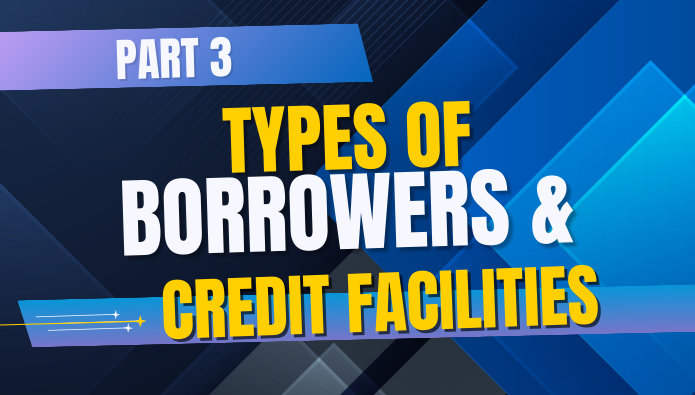Ever wondered how businesses get loans from banks? Or why some loans are easily approved while others require tons of paperwork? If you’re preparing for CCP Certification, this video is a game-changer for you! 🚀
- ✅ Types of Borrowers – From individuals to LLPs, companies & trusts.
- ✅ Credit Facilities in Banking – Cash credit, overdraft, term loans & more.
- ✅ How Banks Manage Risks – What precautions do banks take before lending?
If you’re a banking aspirant, a CCP student, or a finance enthusiast, this video is a must-watch! 📌 So grab a notepad, hit the play button, and don’t forget to drop your questions in the comments!
🎥 Watch the Complete Video:
Types of Borrowers in Banking 🏦
1️⃣ Individual Borrowers
Individuals can apply for personal loans, home loans, or business loans. The approval depends on factors like credit score, income, and employment stability.
These borrowers usually take loans for various purposes such as home purchases, vehicle financing, higher education, or personal expenses. Personal loans are typically unsecured, meaning they do not require collateral, whereas home and auto loans are secured against the asset being purchased.
2️⃣ Partnership Firms
A partnership firm involves two or more people managing a business. Their liability can be limited or unlimited, depending on the agreement.
Partnerships allow businesses to pool resources, skills, and expertise to expand operations. However, partners need to ensure clear agreements regarding profit-sharing, decision-making, and responsibilities. If a partnership firm defaults on a loan, partners with unlimited liability may need to use personal assets to settle debts.
3️⃣ Limited Liability Partnerships (LLPs)
- 🔹 LLPs combine features of a company and a partnership.
- 🔹 The partners have limited liability, reducing personal financial risks.
- 🔹 Banks need extra security since LLPs don’t require ROC charge registration.
LLPs are favored for professional services firms like law firms, consulting businesses, and startups. The limited liability feature protects individual partners from being held personally liable for business debts beyond their agreed capital contributions.
IIBF Certification | CCP | Chapter 3 | Module A | Part 2 [FREE EPDF]
📥 Download PDF Notes
Missed any details? No worries! Click below to download the full PDF with explanations & examples!
🚀 Join Our CCP Preparation Course & Get 82% Off!
- 🎥 Conceptual Video Lessons (Hindi-English Mix)
- 📝 Mock Tests & Mega Mock Tests
- 📚 Complete Study Material (PDFs Included!)
🔥 Limited-Time Offer: 82% OFF – Use Coupon Code: WINTER 🔥
📲 Get the App Now: Google Play Store
Also Like:





